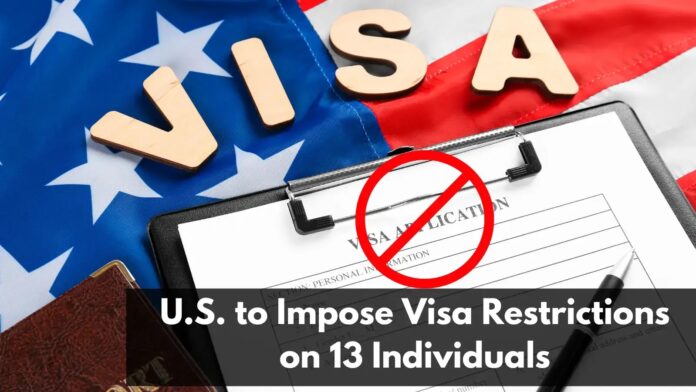[ad_1]
To combat the misuse of commercial spyware, the United States Department of State has announced visa restrictions on 13 individuals linked to developing and selling these invasive technologies.
This decision underscores a broader initiative by the U.S. government to address the proliferation of spyware that threatens personal privacy, national security, and human rights.
Is Your Network Under Attack? - Read CISO’s Guide to Avoiding the Next Breach - Download Free Guide
Crackdown on Spyware Misuse
Matthew Miller, the Department Spokesperson, revealed the new measures in a press statement dated April 22, 2024.
These individuals and their immediate family members have been identified as critical players in the spyware industry, benefiting from or facilitating the misuse of technology that has targeted a wide range of individuals, including journalists, academics, human rights defenders, and U.S. government personnel.
The misuse of commercial spyware has been a growing concern globally, with numerous reports highlighting how such tools have been used to infringe on personal freedoms and conduct espionage.
The visa restrictions have been imposed under Section 212(a)(3)(C) of the Immigration and Nationality Act, following a policy approved by Secretary of State Antony Blinken in February 2024.
This legal framework provides the U.S. with the authority to deny entry to individuals whose activities potentially threaten the country’s foreign policy interests.
Broader U.S. Government Initiatives
The announcement is part of a comprehensive U.S. strategy to curb the dangers posed by commercial spyware.
This strategy includes visa restrictions, stringent export controls, sanctions, and the promotion of accountability measures.
The U.S. government has also limited its use of commercial spyware, which poses risks to national security and human rights.
The U.S. move to impose visa restrictions sends a strong message internationally about the seriousness with which it views the misuse of spyware.
It also sets a precedent for other nations to implement similar measures to protect individuals from digital threats and uphold human rights standards.
As the global landscape of technology and surveillance continues to evolve, the U.S. Department of State’s actions represent a critical step toward establishing a safer and more accountable digital environment.
The focus now turns to how other countries will respond to this initiative and whether an international consensus can be reached to effectively regulate the use of commercial spyware.
Free Webinar: Mastering Web Application and API Protection/WAF ROI Analysis - Book Your Spot
[ad_2]
Source link
